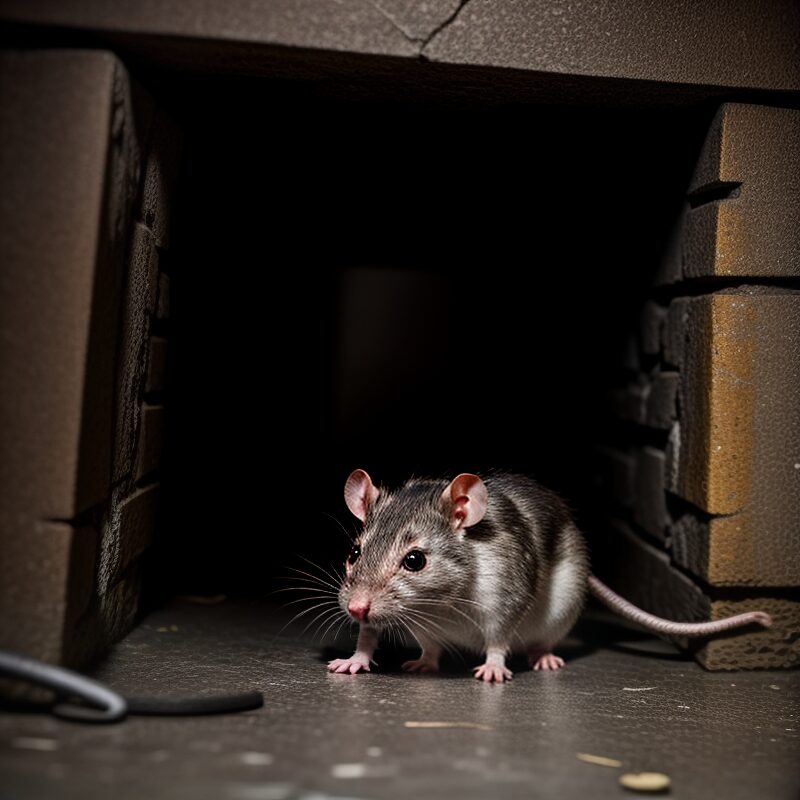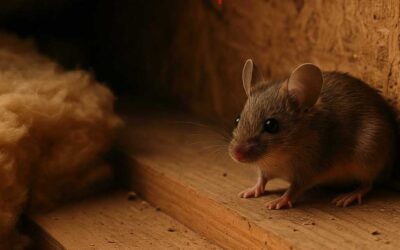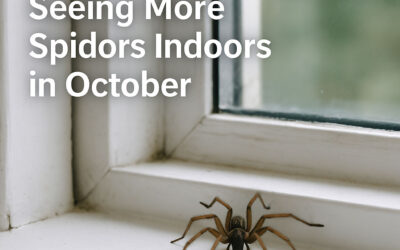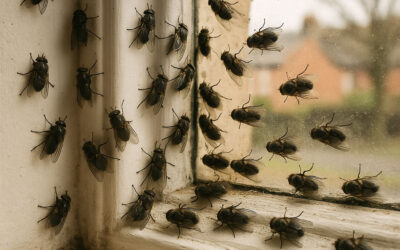Mice may seem small and harmless at first glance, but these unwelcome pests can cause significant damage to your home if left unchecked. They are not only a nuisance but also a serious risk to your property, wiring, insulation, food supplies, and even your health. Understanding the extent of the damage they can cause is essential for recognising the importance of effective pest control.
Structural Damage to Your Property
Mice have strong, ever-growing incisors, which means they need to gnaw continuously to keep them from becoming too long. Unfortunately, this natural behaviour can lead to serious structural damage in your home.
• Walls and Skirting Boards: Mice will chew through wooden skirting boards, plasterboard, and even some types of brick or concrete in their attempt to create entry points and nesting sites. Over time, this can weaken the structure of your home.
• Doors and Cabinets: Wooden doors and kitchen cabinets are frequently targeted, particularly if food is stored inside. Mice can squeeze through tiny gaps and will enlarge holes by gnawing at the edges.
• Lofts and Crawl Spaces: These areas are often used for nesting, leading to damage to stored items, insulation, and wooden beams.
Damage to Electrical Wiring
One of the most serious hazards associated with mice infestations is the risk of electrical damage. Mice will chew on almost anything, including wires, which can have dangerous consequences:
• Fire Risk: Exposed or damaged electrical wiring caused by gnawing can lead to short circuits and, in the worst cases, house fires. Studies have suggested that rodent damage is responsible for a significant number of electrical fires in domestic properties.
• Power Failures: If mice chew through important wiring, it can lead to power outages, malfunctioning appliances, and expensive repairs.
If you notice flickering lights, appliances cutting out, or unexplained tripped circuits, it’s worth checking for signs of rodent activity.
Damage to Insulation
Mice frequently nest within loft insulation, pulling it apart to create warm, comfortable shelters. Over time, this can:
• Reduce the effectiveness of your home’s insulation, increasing heating costs.
• Create unpleasant odours from urine and droppings that seep into the material.
• Lead to further damage if mice continue to tunnel through walls and ceilings.
Replacing insulation due to rodent damage can be costly, especially if infestations go undetected for a long time.
Food Contamination
Mice are drawn to food sources and can easily gain access to kitchen cupboards, pantries, and even sealed packaging. They will chew through plastic, cardboard, and thin metal containers to get to food supplies, contaminating them with:
• Urine and Droppings: Mice leave behind waste as they travel, spreading bacteria such as salmonella and listeria.
• Fur and Saliva: Contaminated food can pose serious health risks, leading to food poisoning and other illnesses.
• Gnaw Marks and Spoilage: Food stored in soft packaging is particularly vulnerable to mice damage. Even if a package looks intact, it could have been contaminated.
Water Damage from Chewed Pipes
In some cases, mice will chew through plastic plumbing pipes, particularly in lofts, under sinks, or behind walls. This can cause slow leaks that may go unnoticed until they lead to:
• Damp and Mould: Hidden water leaks create the perfect conditions for damp, which in turn encourages mould growth.
• Structural Damage: Prolonged water exposure can weaken wooden flooring, walls, and ceilings.
• Increased Water Bills: If leaks go unnoticed, you may end up with higher water costs.
Health Risks and Allergies
Aside from physical damage, mice also pose a health risk to you and your family. Their droppings, urine, and fur can trigger allergies, asthma symptoms, and spread diseases such as:
• Hantavirus
• Salmonella
• Leptospirosis
Mice are known to carry fleas and mites, which can spread to pets and humans, creating further health concerns.
How to Prevent Mice from Damaging Your Home
Preventing a mouse infestation is far easier than dealing with the consequences. Here are some practical steps to protect your home:
1. Seal Entry Points – Mice can squeeze through gaps as small as a 5p coin. Check for cracks, gaps, and holes around doors, pipes, vents, and skirting boards, sealing them with metal mesh or caulk.
2. Store Food Properly – Keep food in sealed containers and avoid leaving crumbs or leftovers exposed.
3. Declutter and Clean – Mice love hidden nesting areas. Keep storage areas tidy, avoid accumulating clutter, and regularly vacuum and clean kitchen surfaces.
4. Check Insulation and Wiring – If you suspect mice activity, inspect your loft, walls, and underfloor areas for signs of gnawing.
5. Use Traps and Deterrents – Placing traps near potential entry points can help to control numbers before they become a serious problem.
6. Call a Professional Pest Control Service – If you see signs of mice, such as droppings, gnaw marks, or scratching noises in walls and ceilings, it’s best to seek expert help.
Professional Mouse Control Services
At Pest Assured, we provide expert pest control services to remove mice from your home safely and effectively. Our team uses proven methods to eliminate infestations and prevent them from returning.
If you suspect a mouse problem in your home, call us on 07375 775 999 or email enquiries@yorkpests.co.uk to arrange an inspection.








